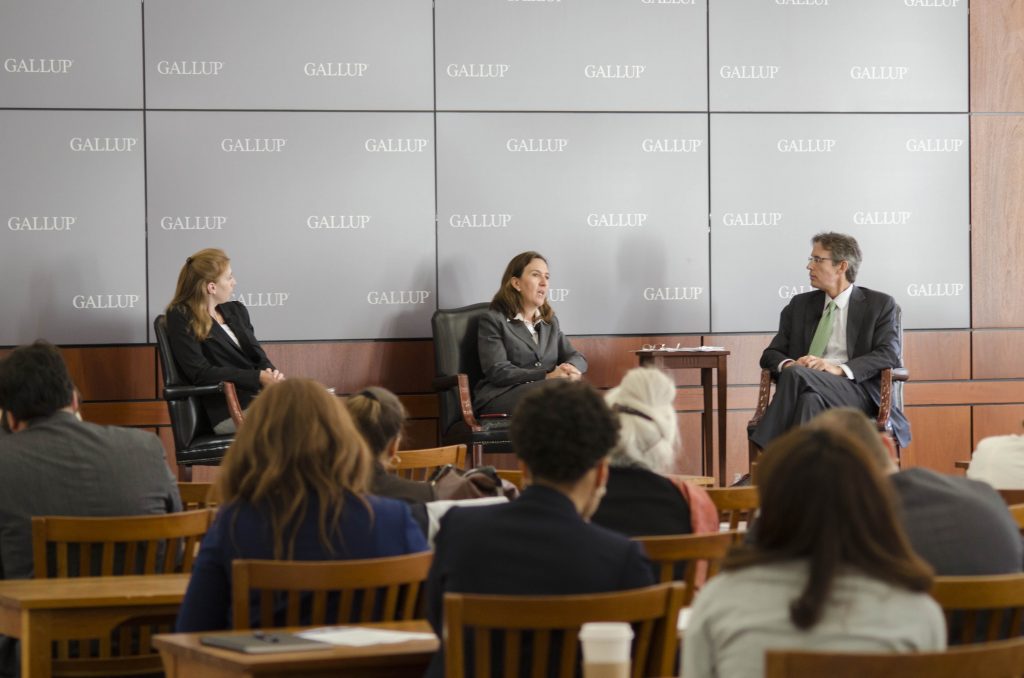Women and Media: Africa in Focus
Impact of Women’s Media Choices – BBG Research Findings on Seven African Countries
More than 75% of Zimbabwean women own a mobile phone, only 18% of women in Niger listen to the radio on a daily basis, and approximately half of women in Côte d’Ivoire watch TV daily. The Broadcasting Board of Governors, together with Gallup, today hosted a research briefing about women’s media consumption habits across seven African countries, and how those choices affect their lives.

“We have to understand the culture and sociology of Africa as we look at its media needs and the needs of women and girls. Research is critical to know what is working and what is not, and media can be a source of informal education,” said Tara Sonenshine, Distinguished Fellow, George Washington University’s School of Media and Public Affairs and former Under Secretary of State for Public Diplomacy and Public Affairs, during opening remarks at the event.
Engagement with the news process also plays a critical role in women’s lives, with approximately a third of women in Mali (37%) and in Zimbabwe (32%) reporting that they had frequently shared news with family, friends, or relatives.
One of the more surprising findings from the BBG research data was that men and women use TV at similar rates, but radio usage varies more dramatically.
“In many of the African nations we survey, households generally tend to own no more than one TV set, which would typically be located in a common room and hence watched communally by all family members,” said Sonja Gloeckle, Director of Research at the BBG, adding that “the explosion in mobile phone ownership on the other hand essentially put a radio in many people’s pocket, and listening to the radio via a mobile’s built-in FM receiver has become very popular. Both men and women like to listen to the radio while they are out and about but men seem to do so more frequently than women.”
Women and men have similar attitudes toward media freedom in their country — but these attitudes vary greatly across countries, according to Gallup World Poll data presented by Magali Rheault, Gallup’s Regional Research Director for Francophone Africa.
“The level of voices from the opposition often drives Africans’ perceptions of media freedom in their countries. If people hear or read negative comments in the media about their current government, they may equate it with freedom of the press. And usually women and men have the same exposure to voices from the opposition, which may explain their remarkably similar attitudes toward media freedom,” said Rheault.
Women play distinct and significant roles in developing societies, and represent a crucial audience for U.S. international media. BBG has sought to expand its reach among women in Africa for the last several years, including by adding new distribution channels, adding new vernacular languages, and creating special programming around women’s interests.
Presenters included:
- Tara Sonenshine, Distinguished Fellow, George Washington University’s School of Media and Public Affairs and former Under Secretary of State for Public Diplomacy and Public Affairs
- Sonja Gloeckle, Director of Research, IBB
- Magali Rheault, Regional Research Director, Francophone Africa, Gallup
